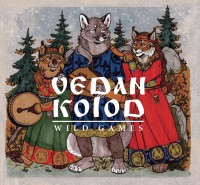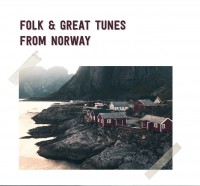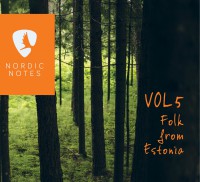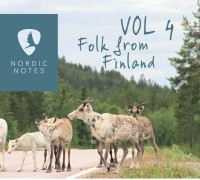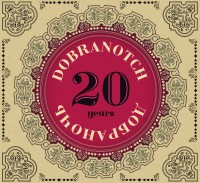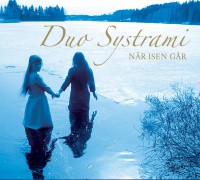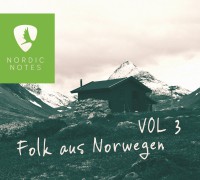- Artikel-Nr.: CP477
DE
„Wenn man Sibirien einmal im System hat, dann wird man es nie wieder los. Ich habe meine Kindheit damit verbracht, durch die Taiga zu streunen, und ich vermisse es“, sagt die russische Folkmusik-Expertin und Musikerin Daryana Antipova. Ihr geht es darum, die lebendige sibirische Volksmusik jenseits aller Klischees bekannter zu machen. Und das funktioniert doch am besten mit einem Sampler, auf dem die aus ihrer Sicht wichtigsten Akteure der Folkszene vorgestellt werden.
In der sibirischen Volksmusik von heute geht es nicht um die hierzulande bekannten, „scheinbar authentischen“ sowjetische Folklore-Ensembles oder professionelle Chöre. Um dies zu verstehen, muss man weit ich die Geschichte zurückblicken: In der UdSSR verstand sich der Staat als „Erzieher“ der indigenen Völker des Landes. Moskau gab Richtlinien vor, die zur offiziellen Staatsdoktrin passten. Mit der kulturellen Tradition der indigenen Völker hatte diese Politik rein gar nichts zu tun. In den vergangenen zwanzig Jahren aber sind aus den Ruinen der „offiziellen sowjetischen Tradition“ immer mehr unabhängige Projekte in der Volksmusik entstanden. In den Regionen Sibirien und Fernost sprechen die Menschen auch heute noch über die Vertreibung, die sie in den 1950er Jahren erleben mussten. Damals drängte Moskau viele russische und indigene Bewohner der Region dazu, in größere Siedlungen mit staatlich gebauten Wohnungen umzuziehen. Die Menschen wurden ausdrücklich ermutigt, ihren Lebensstil zu „modernisieren“. Sie versuchten zwar, ihre Traditionen mit den gleichen Mythen und Legenden zu verknüpfen, die durch viele Generationen weitergegeben wurden, aber nicht immer waren diese Bemühungen erfolgreich. Ein weiteres Problem: Die traditionelle Folklore verschwindet im 21. Jahrhundert genauso schnell wie zu Sowjetzeiten, „dank" der allgegenwärtigen Globalisierung, die kulturelle Unterschiede nivelliert, klagt Daryana Antipova.
Die Musiker aus dem Fernen Osten Russlands sind selbst bei guten Kennern der sibirischen Szene unbekannt. „Ich rief Elena Tyurina an, die Projektmanagerin von Ethnicart, und bat sie um Hilfe. So sind auf der Compilation Vertreter aus Kamtschatka, Tschukotka und der Region Magadan mit dabei, mit Olga Lastochkina, Oleg Napevgi, Yosif Zhukov, Gubernator und Lydia Chechulina. Musiker aus der Region Omsk und der Region Nowosibirsk, Krasnojarsk und der Republik Tyva sind durch Gruppen und Musiker wie Vedan Kolod, Dmitry Paramonov, Oktai, Sretenie, KrAsota vertreten.
„Die musikalische Vielfalt der sibirischen ethnischen Kultur und der indigenen Völker ist riesig. Aber wenn man zusammen mit den Musikern frische frostige Luft einatmen kann, während man ihren Melodien zuhört, dann bin ich dafür sehr dankbar“, schreibt Daryana Antipova.
EN
"Once you have Siberia in your system, you can never get rid of it. I spent my childhood roaming the taiga and I miss it," says Russian folk music expert and musician Daryana Antipova. Her aim is to make the lively Siberian folk music better known beyond all clichés. And that works best with a sampler that presents what she considers to be the most important players in the folk scene.
Siberian folk music today is not about the "seemingly authentic" Soviet folk ensembles or professional choirs known in this country. To understand this, one has to look far back in history: In the USSR, the state saw itself as the "educator" of the country's indigenous peoples. Moscow provided guidelines that fitted the official state doctrine. This policy had nothing whatsoever to do with the cultural tradition of the indigenous peoples. In the past twenty years, however, more and more independent projects in folk music have emerged from the ruins of the "official Soviet tradition". In the regions of Siberia and the Far East, people still talk about the expulsion they experienced in the 1950s. At that time, Moscow pressured many Russian and indigenous inhabitants of the region to move to larger settlements with state-built housing. People were explicitly encouraged to "modernise" their lifestyle. They did try to link their traditions to the same myths and legends that had been passed down through many generations, but these efforts were not always successful. Another problem: traditional folklore is disappearing as fast in the 21st century as it did in Soviet times, "thanks" to ubiquitous globalisation that is levelling cultural differences, complains Daryana Antipova.
The musicians from Russia's Far East are unknown even to good connoisseurs of the Siberian scene. "I called Elena Tyurina, the project manager of Ethnicart, and asked her for help. So the compilation features representatives from Kamchatka, Chukotka and the Magadan region, with Olga Lastochkina, Oleg Napevgi, Yosif Zhukov, Gubernator and Lydia Chechulina. Musicians from the Omsk region and the Novosibirsk region, Krasnoyarsk and the Tyva Republic are represented by groups and musicians such as Vedan Kolod, Dmitry Paramonov, Oktai, Sretenie, KrAsota.
"The musical diversity of Siberian ethnic culture and indigenous peoples is huge. But if you can breathe in fresh frosty air together with the musicians while listening to their melodies, I am very grateful for that," writes Daryana Antipova.







